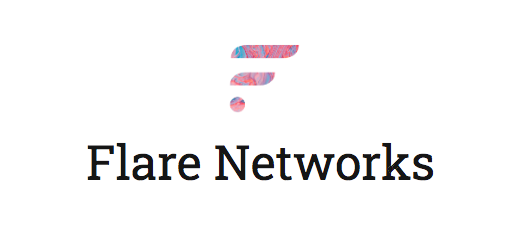As of August 2023, the decentralized finance (DeFi) landscape continues to evolve with significant fluctuations in Total Value Locked (TVL), a surge in hacking incidents, and wavering user confidence. DeFi emerged as a promising alternative to Traditional Finance (TradFi) with the potential to revolutionize the financial industry. However, its journey to mainstream adoption has been hindered by its own vulnerabilities and susceptibility to hacks and scams.

DeFi TVL Dips Below $40B Amidst Market Turbulence and Shrinking Confidence
Recently, the TVL of the DeFi ecosystem has faced tumultuous fluctuations. The TVL, which had remained above $40 billion for most of 2023, experienced a dip below that threshold by August 17, settling at $37.9 billion by August 22. This downward trend was exacerbated by market volatility triggered by Bitcoin’s decline below the $26,000 mark, causing a substantial drop in alternative cryptocurrencies. Consequently, the DeFi sector witnessed a retreat in TVL, shedding 0.92% in the past day alone. This decline in TVL was accompanied by a significant decrease in the value of the top 100 DeFi tokens, resulting in a loss of $1.74 billion in value over a nine-day period. Tokens of notable projects like Uniswap, The Graph, Aave, and Synthetix Network witnessed significant downturns.
Reasons for the DeFi Downturn and Impact on User Confidence
The declining TVL and token values are reflective of the broader challenges and vulnerabilities that have been impacting the DeFi ecosystem. Several factors have contributed to this downturn. Firstly, the drop in the price of crypto assets, such as Ethereum’s decline from nearly $4,800 to $1,600, has led to a decrease in TVL, especially in staked assets. The rapid inflation of TVL during the 2021 bull run was unsustainable. As asset prices dropped, investors sought to withdraw liquidity provider assets, further eroding TVL figures.
Moreover, the DeFi sector has been grappling with instability due to security breaches and hacks. The vulnerabilities of DeFi protocols have been exploited by hackers, resulting in substantial financial losses. Security breaches have raised concerns about platform security, reducing user confidence and participation in DeFi platforms. Notable incidents include a critical vulnerability in Balancer’s v2 pools and a $70 million exploit suffered by Curve.
The Role of DeFi Insurance in Mitigating Risks
To address the risks associated with DeFi platforms, the concept of DeFi insurance has emerged. DeFi insurance aims to provide protection against smart contract bugs, hacks, and other vulnerabilities that can lead to financial losses. DeFi insurance protocols offer coverage to users’ funds, ensuring compensation in the event of incidents. However, selecting a suitable DeFi insurance protocol requires careful consideration of various factors.
Factors to consider when choosing a DeFi insurance protocol include coverage availability, liquidity for payout, transparency, security measures, the claims process, and user interface. It is essential to understand the type of coverage being offered, whether discretionary or parametric. Discretionary cover involves individual claims assessment, while parametric cover focuses on incident assessment, making the claims process more efficient.
Introducing Neptune Mutual
The DeFi insurance landscape comprises various protocols, each with its own offerings and approaches. However, scalability remains a challenge for many protocols, limiting their ability to cater to the broader digital asset market.
One promising player in the DeFi insurance space is Neptune Mutual. This protocol focuses on the blockchains Ethereum, Arbitrum, and BNB Smart Chain, offering parametric cover for faster and more reliable claims processing. The selection of a suitable DeFi insurance protocol requires evaluating factors such as credibility, management team presence, track record, source code availability, audits, and bug bounty programs. By confronting the prevalent roadblocks head-on and introducing novel solutions, Neptune Mutual offers users a seamless, secure, and rewarding journey. The platform’s commitment to transparency, decentralization, and user empowerment sets a new standard for DeFi insurance, promising a brighter future for liquidity providers and investors alike. As the DeFi industry continues to evolve, Neptune Mutual stands firm as a catalyst for positive change, shaping the landscape for years to come.
Neptune Mutual: Features and Benefits
Let’s explore how Neptune Mutual is paving the way for a more secure and user-centric DeFi experience.
1. Parametric Cover Model
Traditionally, insurance claims have been processed through a complex web of assessments, investigations, and evaluations. This approach, while valuable in its own right, often leads to delays and uncertainty for policyholders. Neptune Mutual seeks to change this narrative by introducing parametric cover, an innovative method that redefines how claims are settled.
Parametric cover, at its core, is an insurance mechanism that relies on predefined parameters to trigger a payout in the event of a qualifying incident. Rather than subjecting claims to a lengthy investigation, parametric cover automates the payout process, ensuring that eligible policyholders receive compensation promptly. Neptune Mutual’s parametric cover ensures that when a verifiable qualifying event occurs, payouts are initiated across all cover policies linked to that event. This approach dramatically expedites the claims process, ensuring that users don’t have to wait for individual assessments before receiving compensation.
2. The Forever Lock-in: Addressed with Maximum Coverage Period
A significant roadblock in DeFi insurance pools is the concept of being locked indefinitely, which poses substantial risks for liquidity providers. Neptune Mutual takes a bold step in this direction by introducing a maximum coverage period of three months. This means that users are not bound indefinitely and can plan their exit strategy more effectively. Additionally, Neptune Mutual provides a Proof of Deposit (POD) that acts as a stablecoin deposit certificate. Users can sell or redeem the PODs at any time to exit the contract. This innovative approach ensures that users retain flexibility and control over their investments.
3. Token Value Protection: Safeguarding Investments
Unlike other protocols, Neptune Mutual doesn’t utilize NPM tokens for incident payouts. This strategic move shields token value from incidents, ensuring investment protection while fostering growth opportunities. A common predicament in DeFi protocols is the potential loss suffered by loyal token holders when project tokens are utilized for payouts. Neptune Mutual tackles this challenge by dissociating NPM tokens from risk underwriting. In the event of a payout, stablecoins from the cover pool are provided instead, safeguarding the value of NPM tokens and preventing a negative feedback loop. This unique approach ensures that tokenholders’ investments are shielded from potential losses.
4. User’s Choice in Risk Underwriting: Empowering Liquidity Providers
Another issue faced by liquidity providers in DeFi is the lack of choice in risk underwriting. Neptune Mutual tackles this concern by granting users the autonomy to select the cover pool they wish to join. This strategic move empowers liquidity providers, allowing them to mitigate risks associated with other pools while fostering an environment of fairness and control. This personalized approach also empowers users, fostering a sense of control over their investments.
5. Easy Exit Process: Flexibility and Simplicity
Exiting a DeFi insurance pool can often be as daunting as navigating a maze. Neptune Mutual eliminates this complexity by offering liquidity providers a 7-day window every 180 days to withdraw excess liquidity from the cover pool. With cover policies lasting a maximum of 3 months, users gain greater flexibility and ease in managing their capital within the pool.
6. Unlimited Capital Efficiency: Unleashing Capital Potential
Indefinite lock-ins and a lack of control over underwriting pools can lead to reduced capital efficiency in DeFi insurance. Neptune Mutual combats this by presenting liquidity providers with the choice between unleveraged dedicated cover pools or leveraged diversified pools. This strategic choice empowers users to allocate their capital efficiently and make informed risk-return decisions based on stablecoin returns.
7. Enhanced Transparency: Empowering Informed Decisions
Neptune Mutual adopts an open-source approach, providing complete transparency to users. Every facet, from audit reports to contracts, is visible to the public, ensuring that users can make well-informed decisions.
8. True Decentralization: Empowering User Identity
Valuing the essence of decentralization, Neptune Mutual eliminates the need for KYC procedures, granting users full control over their identities. This inclusive approach aims to create a financial ecosystem that aligns with the spirit of DeFi.
9. Neptune Mutual: Future Vision and Innovations
Neptune Mutual is not merely content with addressing the current roadblocks; it envisions a future where DeFi insurance is simpler, more user-friendly, and accessible to all. Through enhanced transparency, true decentralization, innovative risk management, and token value protection, Neptune Mutual is laying the foundation for a new era in DeFi insurance.
Navigating the DeFi Landscape
The DeFi sector’s journey toward mainstream adoption has been characterized by both promising advancements and significant challenges. The fluctuating TVL, hacking incidents, and wavering user confidence highlight the need for robust solutions to mitigate risks and build user trust. DeFi insurance protocols, such as Neptune Mutual, offer a promising path to address these challenges and contribute to the ecosystem’s resilience and growth. As the DeFi landscape continues to evolve, careful consideration of available options and a commitment to security and transparency will be crucial for the sector’s long-term success.
Join Neptune Mutual in its mission to cover, protect, and secure on-chain digital assets.
Official Website: https://neptunemutual.com
Marketplace: https://neptunemutual.com/marketplace
Blog: https://neptunemutual.com/blog/
Twitter: https://twitter.com/neptunemutual
Reddit: https://www.reddit.com/r/NeptuneMutual
Telegram: https://t.me/neptunemutual
Discord: https://discord.gg/2qMGTtJtnW
YouTube: https://www.youtube.com/c/NeptuneMutual
LinkedIn: https://www.linkedin.com/company/neptune-mutual
Personal Note From MEXC Team
Check out our MEXC trading page and find out what we have to offer! There are also a ton of interesting articles to get you up to speed with the crypto world. Lastly, join our MEXC Creators project and share your opinion about everything crypto! Happy trading! Learn about interoperability now!
Join MEXC and Get up to $10,000 Bonus!
Sign Up


